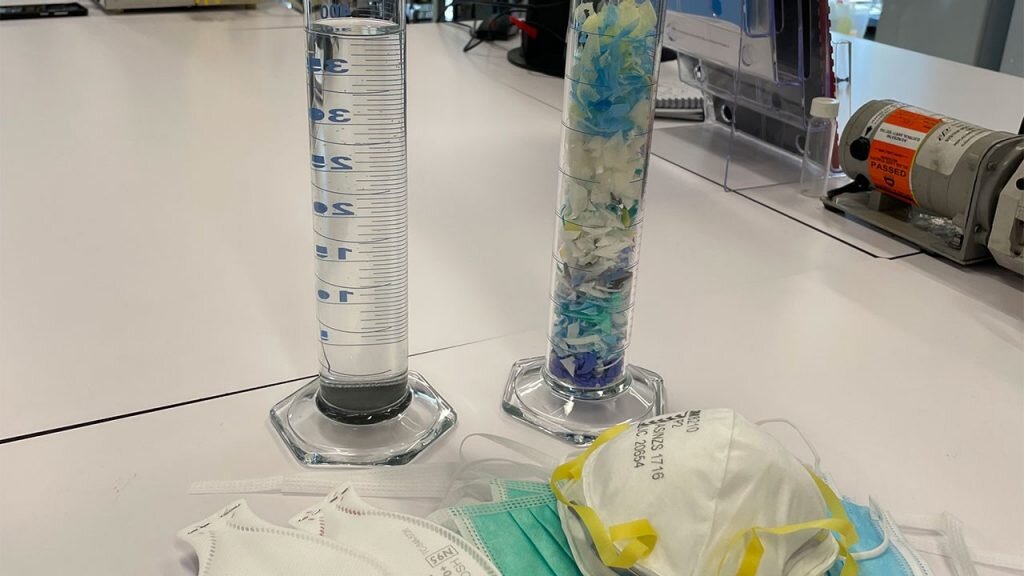By University of Auckland
A process to convert personal protective equipment (PPE) waste into harmless byproducts is a potential game changer to the problem of PPE waste filling landfills and polluting oceans and rivers.
Shredded masks, gowns, gloves and plastic safety glasses go into a machine; hot, pressurized water, and compressed air are applied; water and acetic acid are the end-products. The PPE-to-liquid process is carried out at a temperature of 300C and takes about an hour in a small prototype machine in a laboratory in the faculty.
Gaseous byproducts from the process are oxygen and low concentrations of carbon dioxide that can be safely discharged. “This is a clean, chemical-free solution which will be a game changer internationally,” says Dr. Saied Baroutian, an associate professor in the University of Auckland’s Department of Chemical and Materials Engineering.
“The technology used is a hydrothermal deconstruction or valorization process, and it destroys the waste completely. The liquid produced in the process is safe, inert, and can be reused – the vinegar or acetic acid can be used for disinfecting, and the water can be reused for the processing cycle, therefore minimizing water consumption and helping with sustainability.”
The process has been developed at the University of Auckland in collaboration with the Faculty of Medical and Health Sciences and the Universities of Otago (also in New Zealand) and Waterloo (Canada). It is one of two innovative solutions that link up to tackle the COVID-19 healthcare waste problem that has been described as “threatening human and environmental health” by the World Health Organization.
Dr. Yvonne Anderson, a senior lecturer at the Department of Paediatrics, University of Auckland, is leading a project that uses revolutionary technology to disinfect PPE so it can be reused or recycled safely. Says Baroutian: “By developing two technologies – one for reusable waste, and the other for waste that cannot be reused or recycled – we are closing the loop on this ever-growing serious waste issue, and providing a circular solution that truly is clean and green.”
The research teams are taking steps to develop the solutions into a larger-scale pilot system and, learning from that, will develop a full-scale proof-of-concept. “That is the point where we can showcase the technology, ensure the designs will work with the flow of PPE waste, and find funding or potential partnerships with commercial organizations so these technologies can be implemented in New Zealand and overseas,” says Saeid.
In terms of cost, the researchers have already completed an economic analysis that shows a large-scale hydrothermal deconstruction system could process PPE waste at a cost comparable to the current practice of autoclaving and landfilling. “And in terms of the environment,” says Saeid, “the savings on offer are huge.”
https://phys.org/news/2022-02-ppe-vinegar.html


